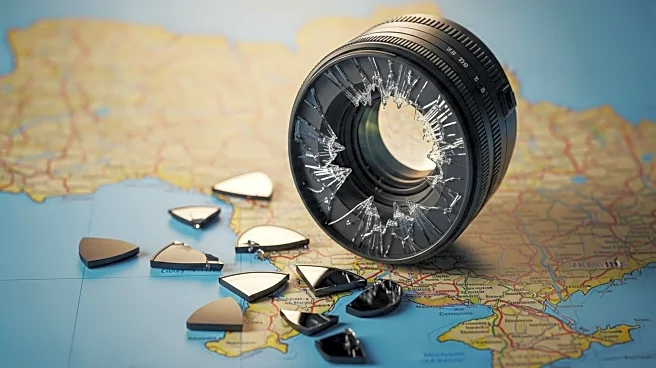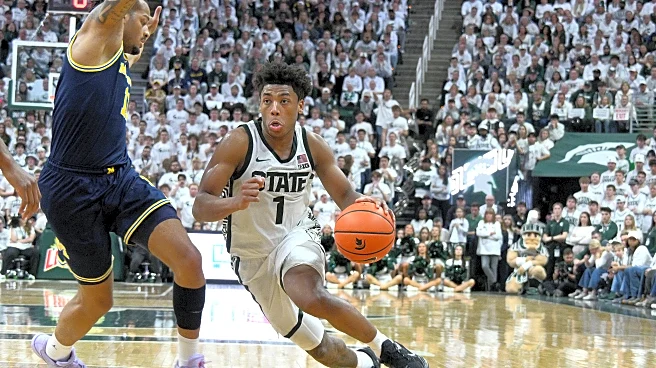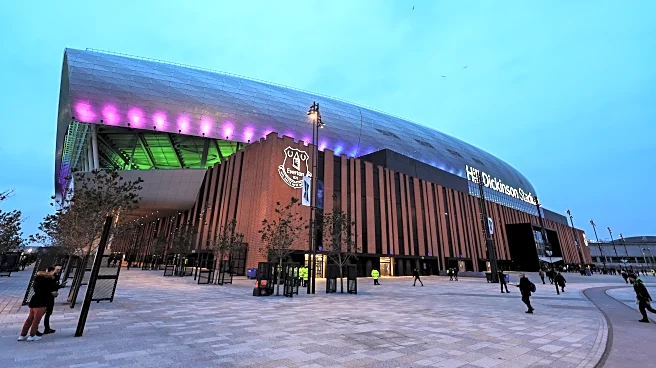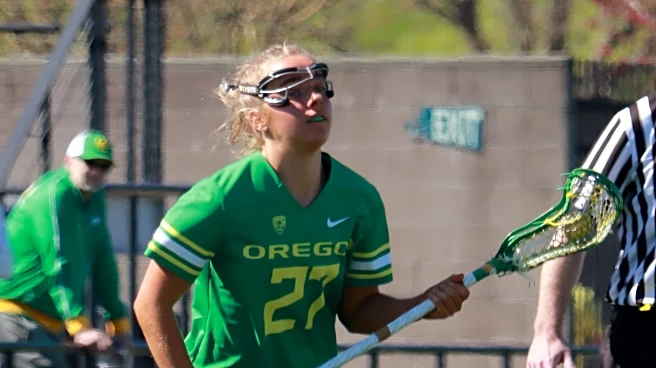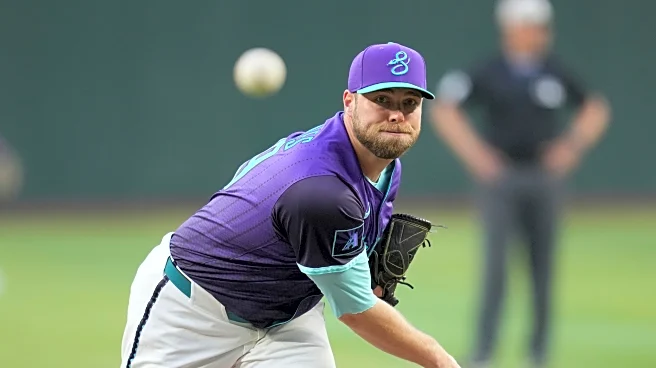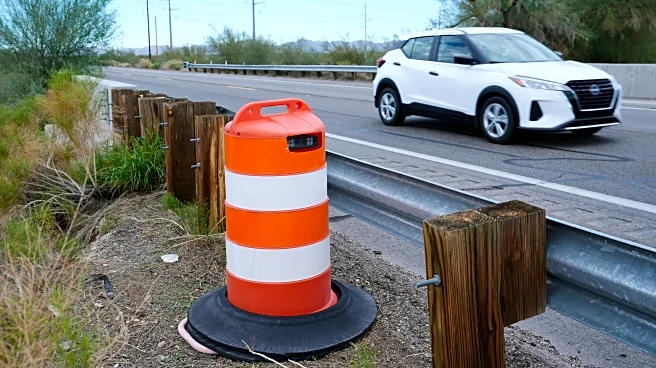What's Happening?
French photojournalist Antoni Lallican was killed in a Russian drone strike in eastern Ukraine, as confirmed by the Ukrainian military. The incident occurred near the village of Komyshuvakha in the Donetsk region, where Lallican was documenting the ongoing conflict. He was embedded with the 4th Mechanised Brigade alongside Ukrainian photojournalist Grigoriy Ivanchenko, who was injured in the attack. Despite wearing protective gear marked with 'PRESS', Lallican was killed instantly, while Ivanchenko survived but required a leg amputation. This marks the first instance of a journalist being killed by a drone in Ukraine, according to the European and International Federations of Journalists. Lallican had been covering the war since March 2022 and was recognized with the Victor Hugo Prize for photography in 2024.
Why It's Important?
The death of Antoni Lallican underscores the severe risks faced by journalists covering conflicts, particularly in Ukraine, where 17 journalists have been killed since the Russian invasion began. This incident highlights the dangers of modern warfare, where drones are increasingly used, posing new threats to those documenting war zones. The loss of Lallican, a respected photojournalist, is a significant blow to the journalistic community, emphasizing the critical role of media in providing firsthand accounts of war. His work served as a vital link between the global audience and the realities of the conflict in Ukraine, making his death a poignant reminder of the sacrifices made by journalists in pursuit of truth.
What's Next?
In response to Lallican's death, there are calls for accountability and justice for the perpetrators of the attack. The European and International Federations of Journalists have demanded that those responsible be brought to justice. This incident may prompt further discussions on the safety measures for journalists in conflict zones and the need for international protocols to protect media personnel. Additionally, the Ukrainian government and international bodies may increase pressure on Russia to address the targeting of journalists and ensure their safety in war-torn areas.
Beyond the Headlines
Lallican's death raises ethical questions about the targeting of journalists in conflict zones and the responsibilities of warring parties to protect non-combatants. It also highlights the evolving nature of warfare, where technology like drones introduces new challenges for safety and accountability. The incident may lead to increased advocacy for stronger international protections for journalists and a reevaluation of the risks associated with frontline reporting.
